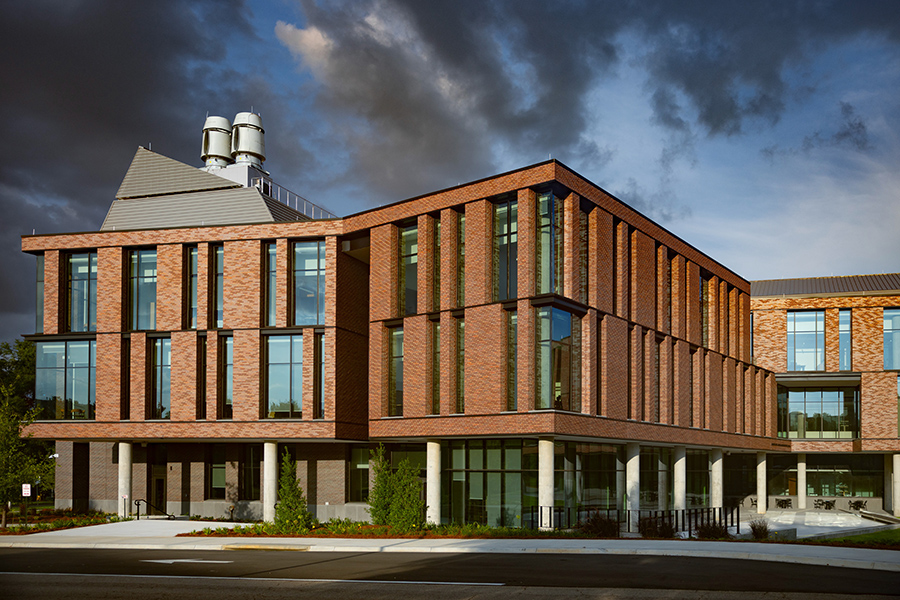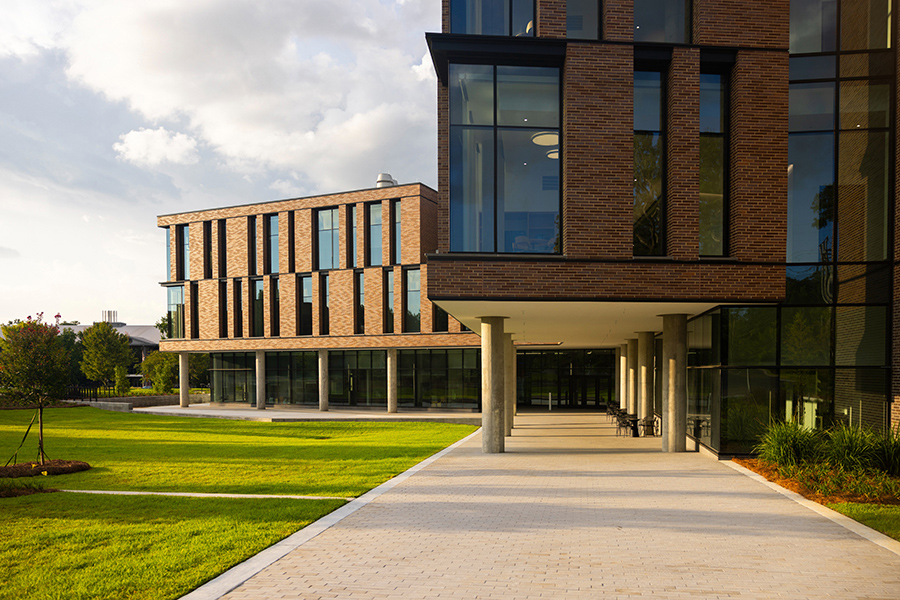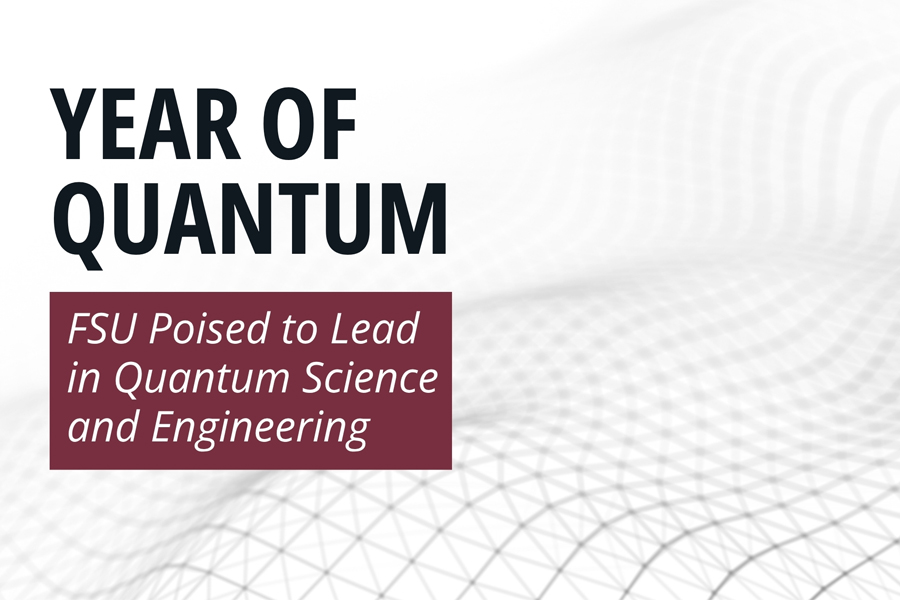
Scientists around the world are marking 2025 as the “Year of Quantum,” recognizing a century since the birth of modern quantum mechanics and the potential for quantum science and engineering to yield breakthroughs in high-performance computing, communication technology, cybersecurity, medical imaging, environmental sensing and more.
The Quantum Initiative at Florida State University aims to further quantum science and engineering (QSE) and to realize its potential for transforming technology and our understanding of how to apply these new technologies to improve our world.
FSU has made major investments in expanding its existing research in this rapidly growing field. At the university’s 2023 quantum symposium, FSU President Richard McCullough announced an initial investment of more than $20 million into the initiative. Two years later, the university has hired seven new faculty members and 11 postdoctoral fellows and has opened a new $126 million cutting-edge laboratory space where faculty and researchers can develop the next generation of quantum science and engineering.
“Florida State University is a national leader in quantum research,” McCullough said. “Quantum science and engineering will change the world and transform lives and FSU plans to lead the way.”
NEW FACULTY AND FACILITIES
People are the centerpiece of the university’s efforts in quantum science and engineering. The university is investing in existing faculty and adding new researchers to support groundbreaking QSE research. Investment by FSU leadership has allowed the university to attract some of the best young talent in this field.
“We are deeply committed to becoming a global leader in key research areas, building on the exceptional foundation laid by our outstanding faculty,” said Vice President for Research Stacey S. Patterson.
Along with new hires, support from the Florida Legislature has allowed FSU to develop the facilities that will enable scientists to break new ground in quantum research.
The Interdisciplinary Research and Commercialization Building (IRCB) will be a hub for researchers from a variety of disciplines and serve as the headquarters for FSU Quantum. With state-of-the-art equipment and remarkable faculty talent, FSU leadership envisions the IRCB as a regional focal point for quantum science and engineering, drawing researchers from around the Southeast who may use the equipment for their own projects.
RESEARCH AND COLLABORATION
Quantum science has the potential to transform our understanding of physics at the smallest level of matter and to nurture technologies that will revolutionize fields such as materials science, computing and others.
The research at FSU is focused on four main themes: qubit design and measurements, quantum and topological materials, quantum optics and networks, and quantum theory and algorithms.
“We chose to focus on areas where our existing research strengths and the most exciting possibilities of quantum technology intersect,” said Michael Shatruk, director of FSU Quantum and a professor in the Department of Chemistry and Biochemistry.
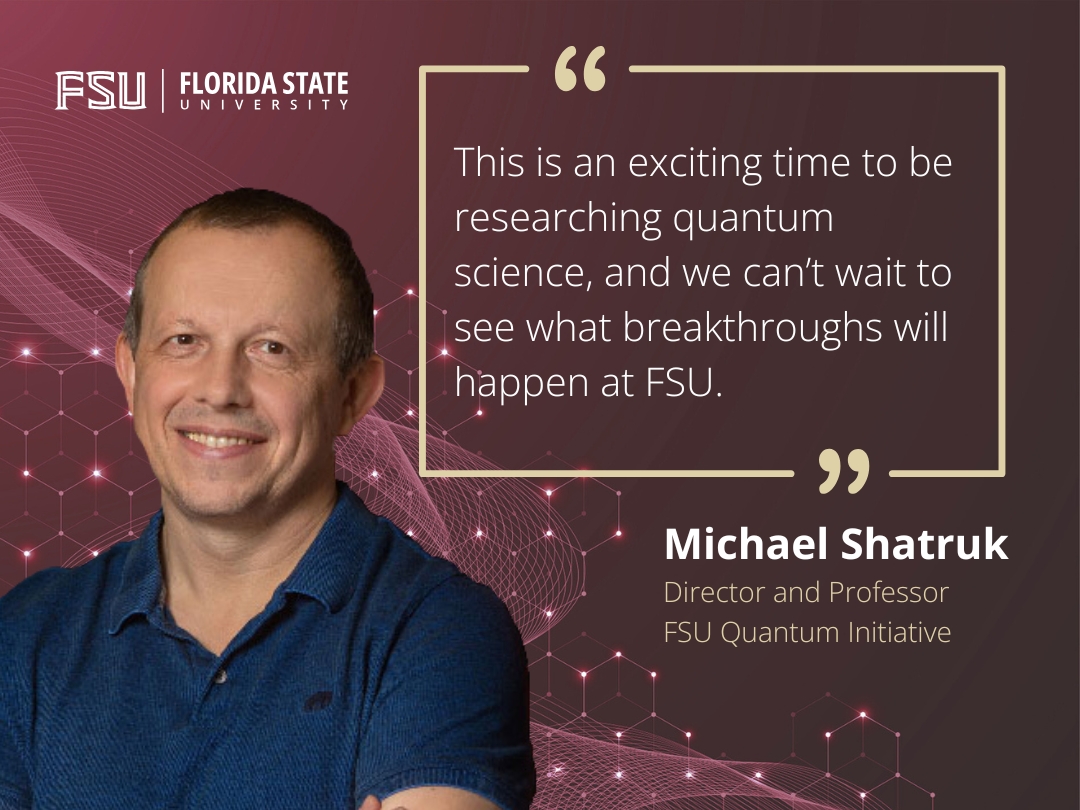
A major goal of QSE research is the development of a reliable quantum bit, or qubit, to enable quantum computing, a powerful technology that has the potential to solve complex problems that would take classical computers many years to calculate, such as drug discovery, optimization and cryptography. But for that potential to be realized, we need qubits that will make the quantum computers run under realistic conditions.
At FSU, Stephen Hill, a professor of physics and director of the National High Magnetic Field Laboratory’s Electron Magnetic Resonance program, is leading an interdisciplinary effort to examine heavy elements as possible solutions to the qubit problem.
His group is researching the viability of lanthanides — a group of 14 elements with unique optical and magnetic properties arising from unpaired electrons occupying orbitals that are shielded by the atomic core electrons. Under the right conditions, these elements have the ability to store quantum information for extended periods of time, which could make them useful for building magnetic qubits.
Chemical tools like lanthanides offer an alternative to superconducting electronic circuits, which have been studied as a possibility for qubits, but which are complex and fragile. Through work published in journals such as Nature Chemistry and Journal of the American Chemical Society, Hill’s group is pushing the boundaries of what we know about these elements and how they could be used in quantum applications.
“None of this would be possible, if we didn’t have chemists and physicists working really closely together,” Hill said. “And not just some distant collaboration, but actually sitting down and trying to talk about, discuss, talk in the same language so that the chemists understand what it is that we want from the point of view of the quantum physics, and we can start to learn from chemists the kind of magic that they can perform in making elements like praseodymium and lutetium behave in a way that they hadn’t previously ever.”
A related research focus is the development of quantum hardware and the technology that supports it. Technologies such as cryogenic systems for cooling and superconducting materials for minimizing energy loss can make possible the precise manipulation and measurement of quantum information necessary for qubits and other quantum hardware.
FAMU-FSU College of Engineering Professor Wei Guo studies superconducting and magnetic materials, such as superfluid helium — a quantum fluid that can be cooled to extremely low temperatures. It is used to cool particle accelerators or the magnets at the FSU-headquartered National High Magnetic Field Laboratory. It’s also crucial for MRI machines, superconducting power transmission cables and other applications.
“Superfluid helium is a crucial tool for managing heat transfer in technologies we rely on for health, power and scientific research,” Guo said. “Recent research has shown how it can play a role in quantum technology. Our work is helping to understand this material and expanding what is possible.”
FSU faculty continue to work on other opportunities in quantum science, such as understanding the physics that govern quantum theory and improving the algorithms that train neural networks.
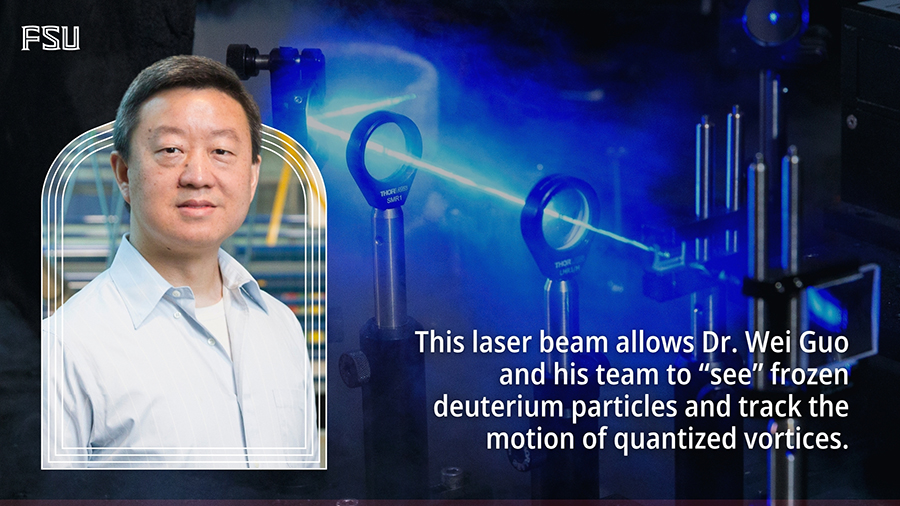
OUTSIDE INVESTMENT
Florida State’s achievements in quantum science and engineering have attracted outside support that is adding to the university’s capabilities.
Hill and Shatruk are participants inthe Molecules to Quantum Materials (M2QM) initiative, an Energy Frontier Research Center funded by the U.S. Department of Energy, which has brought more than $2.5 million to FSU for research on molecular qubits.
The FAMU-FSU College of Engineering secured two $5 million grants as part of the National Science Foundation’s Expanding Capacity in Quantum Information Science and Engineering (NSF ExpandQISE) program. Their projects aim to position the joint college as a hub for innovation and education in quantum science.
Eugene DePrince, an associate professor in the Department of Chemistry and Biochemistry, is leading a $4.4 million project supported by the U.S. Department of Energy to help create software that can take advantage of supercomputer capabilities and advance quantum information science.
“The fact that we are competing for and winning outside support demonstrates the value of our work and the recognition that we are a good investment,” Shatruk said. “This is an exciting time to be researching quantum science and we can’t wait to see what breakthroughs will happen at FSU.”




